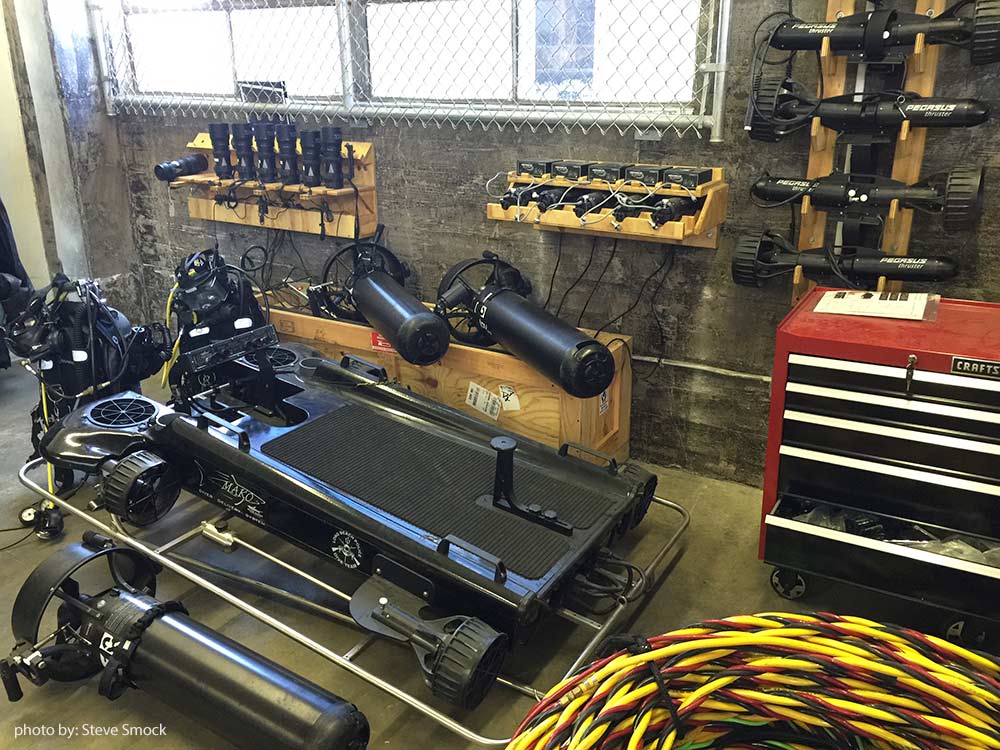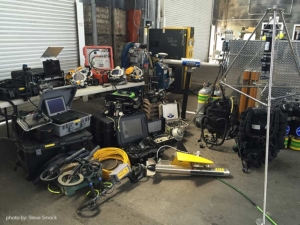PUBLIC SAFETY DIVE TEAM PURCHASING:
THE ART OF GETTING THE MOST FOR YOUR DOLLAR
by Steve Smock:
Limited budgets, lean times, fiscal responsibility, taxpayer’s dollars, competing budgetary interests; terms you know too well if you have a hand in purchasing equipment for your PSD Team. You also understand the delicate balance of spending the public’s money on one hand and outfitting your team with the best gear and gadgets on the other.
Typically, the responsibility of the final product rests with you. Most likely, the bosses have entrusted you with this money and believe you have recommended the most appropriate equipment at the fairest price. Over the last several years I have been in the position to help purchase equipment for our team. I have felt this pressure and have learned some valuable lessons along the way. In the hope of sharing some of these lessons with you, I summed up a laundry list of ideas into two main topics.
1. THEY WORK FOR YOU
What I mean by this is whether you’re dealing with a retailer, distributor, or manufacturer, the best impression you can get is a willingness from them to work for your business. You should feel a sense of commitment from them before, during, and after the sale. If you don’t get this impression, cut bait and move on. One major issue is that they most likely won’t be around to work with you after the sale. This, of course, is typically when you’re going to most need their expertise. A good indication someone is willing to work for you is if they demonstrate the following:
- Comes to your location to demo equipment or sends you a sample(s) to test.
- Is responsive to your questions and ideas about how to best customize the product to fit your needs and/or integrate the product with other manufacturers you currently possess.
- Is honest and upfront regarding any downsides to the product and its capabilities.
- Willingness to, by phone or in person, assist your team with any technical issues during an actual operation or project.
- Offers customized support and continued training as needed, software upgrades, and direct access to technical support.
You have most likely already discovered that the vast majortiy of your best purchases have come from companies who were willing to put in the work to know your team’s personnel and understand its capabilities, missions, and goals. When this occcurs, they are able to offer the best solutions to fill the gaps with the most appropriate product(s). This creates a relationship that goes beyond just selling a widget. If you make a purchase with someone who is unwilling to take the time to form this relationship, you are almost guaranteed to spend more money both upfront and in the long run. Seek out someone who will work for you and it will work out for both of you in the end.
2. YOU WORK FOR THEM
Irrespective of how much effort they put in to earn your business, there is still the bottom line – they are in business to make money, not to fund your team. When you reach the point of trust to do business, take the time to work for him or her. Here are a couple suggestions for putting your skills to work for them.
- Help promote this new deal. A press release or providing quotes for their press release goes a long way.
- Share with them stories of successful operations using the equipment.
- Invite other teams to a demonstration or training of the new product.
- When appropriate, take them out diving and allow photos.
- Offer real feedback on the product; give ideas for improvement of their product as it relates to the PSD market.
- Be willing to be contacted as a reference for other teams looking to purchase similar equipment.
Companies can’t buy this type of interaction; it is invaluable to them and they benefit greatly from it. In return, so will your team.
Just as you seek to do business with a company that works to ensure your team’s success, companies desire to do business with teams they believe will help with their success. A top tier company will do what they can in most cases to keep your business, which is yet another benefit to your team.
A FEW COMMON QUESTIONS:
Is this strategy appropriate when making small “dive essential” purchases, e.g. o-rings, fins, masks, weights?
- Yes, I cannot tell you how many times a small purchase has turned into something much more signifcant in terms of the recommendation of another type of product, training, or just the purchase of even better non-essentials. When it comes down to it, all dive gear should be considered life support equipment and you want to make sure you are getting it from someone who believes the same.
Can a purchase be successful through a non-local vendor you have never met?
- Let’s be realistic – no one company carries all products needed for a PSD Team or has the representation to cover a large swath of territory. Many of these companies are small businesses that don’t have the marketing budgets and distribution networks the large companies do. They thrive on direct sales to the end user and are eager to assist you with product knowledge and customer support to earn market presence in the diving industry. Some of the best equipment and customer service have come from people we have yet to met face to face.
Can it still be used if I’m making a purchase through a bid process?
- Give this a try – list in the bid specs some of the above suggestions. I think you will see that your prospective bidders list will be much smaller. Companies that are in it to just pass a product through the purchasing process usually wont take the time to fill out the bid forms if they know they can’t meet your specs. Also, if a company comes in at a lower price in the bid process, but cannot offer these services, you can usually petition to go with a higher bidder who does offer these additional services.
In addition to buying really cool dive gear, this method will introduce you to some of the most incredible people along the way. Fortunately, there is no shortage of crazy smart, talented, and dedicated individuals in the dive industry. Most have captivating stories that brought them to the position they are in now. We have met people from around the world to include military, academia, and the commercial dive industry. The insights, ideas, and training these professionals offer just cannot be reflected in a purchase order. When you enter into the realm of technical public safety diving, e.g. sonars, bathymetry, acoustic signals, comm ports, Doppler GPS, etc, you just don’t know what you don’t know. But they do. You may not always know the answer, but if you’ve taken the time to work on forging a lasting business partnership, the answer will only be a phone call away. What more can you ask for? (Besides a bigger budget)
Steve Smock
Public Safety Dive Supervisor
Steve Smock has been a PSD supervisor for over ten years and has procured approximately 2.5 million dollars in dive equipment and training.



Tinggalkan Maklum Balas Anda
Ingin Berbincang Bersama?Kami Hargai Sumbagan Anda!